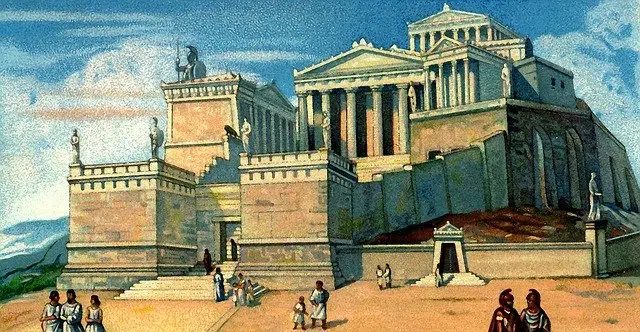
The polis were cities of Ancient Greece.
The term polis comes from Greek and refers to the ancient states that, organized as a city , had a small territory and were governed autonomously from other entities.
The polis, therefore, are city states that existed in Ancient Greece , before the advance of the Roman Empire . They were characterized by linking the rural environment with urbanizations , a situation that took hold in the mid- 7th century BC .
Police establishments
Polis society used to be divided into three classes. On the one hand, there were free citizens who enjoyed the fullness of civil rights. Foreigners , on the other hand, lived in freedom but did not have certain rights. Finally, slaves did not enjoy rights nor could they live in freedom.
In addition to everything explained, it is important to know other aspects of the polis, to be able to understand what they meant, how they functioned or even what they left behind in subsequent centuries:
-Each polis enjoyed clear economic independence. What did that mean? That it produced enough resources to be able to feed its entire population.
-In the same way, each of them also had political independence.
-It has always been particularly highlighted in the Greek polis that not only did their inhabitants have an important civic spirit but they also encouraged citizen participation .
-They had a religious cult and advocated the maintenance of traditions and customs.

The acropolis was a fundamental area of each polis.
Security and urban planning
At the territorial level, the polis had a center protected by walls , surrounded by rural areas in which agriculture and livestock were developed. About ten thousand inhabitants lived in the largest polis, distributed in territories of no more than three thousand square kilometers.
Specifically, at an urban planning level, each and every one of the Greek polis had three fundamental elements, such as the following:
-The aforementioned wall, which had a marked defensive objective.
-The acropolis, which was the upper city that was built in an elevated part of the territory. Its objective was that, in the event of an attack, all members of the polis could take refuge and protect themselves. Likewise, it should not be overlooked that important buildings for the community were also built in that place, both religious, political and economic.
-The agora. This served as a public square and became the center of the city's life, since, for example, commercial activity was carried out there through the development of the market. All this without overlooking that it was also the scene of cultural and religious events of various kinds.
The polis and its political organization
The political organization of the polis, for its part, mutated over the years from a kind of monarchy to a system governed by assemblies, in which political decisions were made by the representatives of the most powerful families.
The demands of citizens of other classes to improve their situation caused revolts that undermined the power of the oligarchy. In this context, the polis witnessed the rise of tyrants who, to put an end to these oligarchies, took power and exercised populist and, at the same time, absolutist governments.
